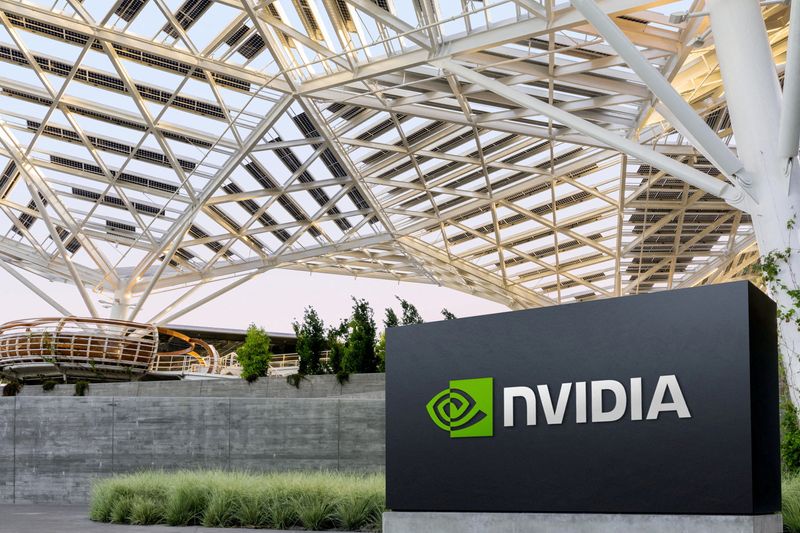China’s Xi speaks with Trump by phone, discusses Taiwan and bilateral ties
Investing.com -- Nvidia (NASDAQ:NVDA) has overtaken its peers as the most under-owned mega-cap technology stock, according to Morgan Stanley’s analysis of second-quarter 13F filings.
The gap between the chipmaker’s institutional ownership and its S&P 500 weighting widened by 92 basis points in the quarter, ending at -2.41% — the sharpest underweighting among large-cap tech stocks.
Only Microsoft (NASDAQ:MSFT) in the second quarter of 2024 was more under-owned than Nvidia was at the end of the second quarter of 2025 over the last 16 years, Morgan Stanley (NYSE:MS) said.
The broader group of mega-cap tech stocks, including Microsoft, Apple (NASDAQ:AAPL), Amazon (NASDAQ:AMZN), Alphabet (NASDAQ:GOOGL) and Meta (NASDAQ:META), remain under-owned relative to their index weights.
Morgan Stanley highlighted that “mega-cap tech stocks are more under-owned vs. the S&P 500 exiting 2Q at any point in the last 16+ years,” with the spread across the group widening to -140 basis points from -116 basis points in the prior quarter
By contrast, the rest of large-cap tech finished the quarter slightly over-owned at +15 basis points.
Nvidia’s average active portfolio concentration slipped to 4.20% from 4.88% in the first quarter, while its S&P 500 weight rose to 7.37%. This marked the steepest drop in positioning among large-cap semiconductors.
“While investor enthusiasm around Nvidia’s AI leadership remains strong, positioning continues to be tempered by volatility tied to geopolitical dynamics,” analysts led by Erik W. Woodring wrote.
Other major stocks also showed wide gaps. Microsoft’s institutional ownership, though higher quarter-on-quarter, remained more than 200 basis points below its S&P 500 weighting.
Apple narrowed its under-ownership to -1.66% from -2.06% in the first quarter, helped by a decline in its index weighting.
Meanwhile, Amazon and Alphabet each remained under-owned, while Meta shifted into underweight territory for the first time since late 2021.
Historically, low active ownership relative to the index has correlated with stronger forward stock performance, analysts said.
“This indicates that on average, stocks appear to experience a technical pull higher when active ownership is much lower than the market, and vice versa,” they added.
Nvidia’s underweight status comes despite analysts reiterating its central role in the current AI investment cycle. Leading indicators of compute demand remain “exceptionally strong with no signs of slowing,” reinforcing its positioning as a premier asset in the AI era.
